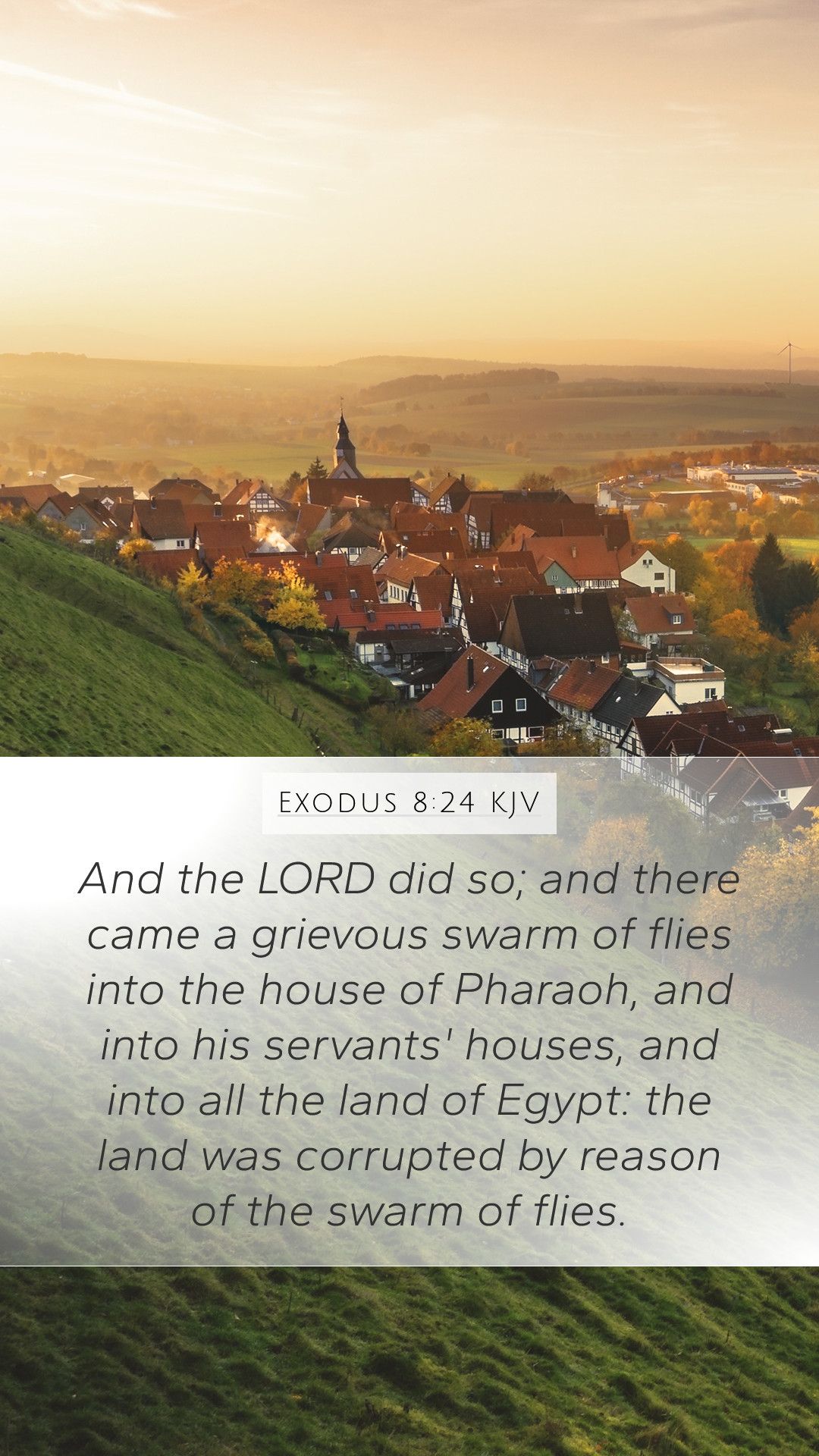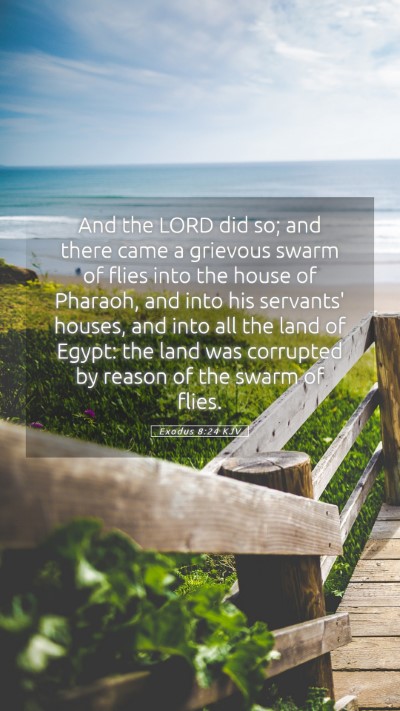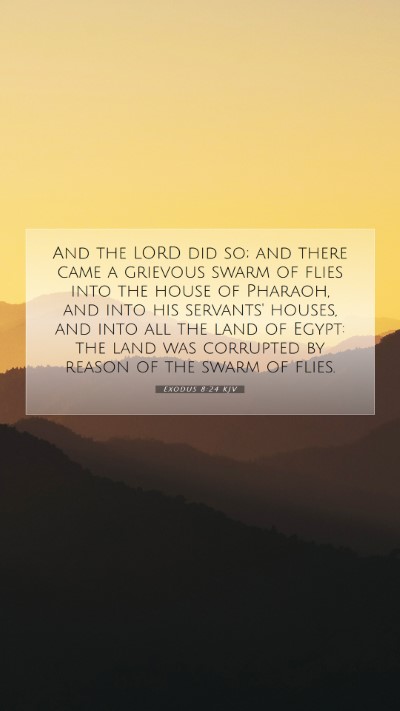Understanding Exodus 8:24
Bible Verse: Exodus 8:24 - "And the LORD did so; and there came a grievous swarm of flies into the house of Pharaoh, and into his servants' houses, and into all the land of Egypt: the land was corrupted by reason of the swarm of flies."
This verse is pivotal in the narrative of the plagues that God sent upon Egypt to persuade Pharaoh to let the Israelites go free. Below, we offer a comprehensive analysis and interpretation, drawing insights from esteemed public domain commentaries.
Historical Context
The story of Exodus takes place during the time when the Israelites were in bondage in Egypt. God appoints Moses to lead the Israelites out of slavery. Each plague demonstrates God's power over the Egyptian gods and shows the futility of Pharaoh’s resistance.
Biblical Exegesis
- Intervention of the LORD: The phrase "And the LORD did so" emphasizes God's direct action in response to Moses' plea. This indicates a divine intervention that alters the natural order, reinforcing the theme of God's sovereignty over creation.
- Grievous Swarm of Flies: The mention of a "grievous swarm of flies" highlights the severity and discomfort that comes with God's judgment. Matthew Henry notes that the plagues were not mere inconveniences but rather significant afflictions intended to demonstrate God's might and to punish the Egyptians for their oppression.
- Corruption of the Land: Adam Clarke comments on the phrase "the land was corrupted" as indicating both the physical and spiritual degradation that resulted from sin. The presence of swarms of flies illustrates not only a literal corruption but also serves as a metaphorical representation of moral decay.
Interpretation by Commentators
- Matthew Henry elaborates that this plague signifies God's displeasure not only against the Egyptians but also against Pharaoh's stubbornness in the face of divine warnings.
- Albert Barnes points out that the flies represent chaos and disorder, indicating that the protective hand of God was lifted from Egypt, allowing chaos to reign in the land.
- Adam Clarke emphasizes the irony: the same flies which were a source of torment for the Egyptians remarkably did not trouble the Israelites, signaling a distinction God makes between His people and those who oppose Him.
Application and Significance
Exodus 8:24 not only serves as a historical account but also provides profound lessons for modern readers. It challenges believers to reflect on the consequences of sin and rebellion against God's commands. The overwhelming nature of the flies illustrates the impact of unchecked sin on society.
Additionally, the isolation of the Israelites during this plague can serve as a reminder of God's protection over those who are faithful to Him. This verse is a call for self-examination, encouraging individuals to seek God's favor and presence in their own lives.
Cross References
- Exodus 8:1 - The warning to Pharaoh about the plague.
- Exodus 8:16-17 - The description of the second plague: gnats.
- Exodus 9:3 - The next plague of livestock pestilence.
Closing Thoughts
In summary, Exodus 8:24 is rich in meaning and offers valuable insights into God's character and His dealings with both His people and their oppressors. As believers engage in Bible study groups or pursue online Bible study, this verse can serve as a powerful reminder of divine justice and mercy.
For those striving to gain a deeper understanding of Scripture, this passage is an excellent resource for in-depth Bible verse analysis and contextual study.


